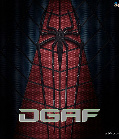http://www.xxlmag.com/news/2014/02/emin ... -shady-lp/
Yesterday (Feb. 23) was the 15 year anniversary of Eminem's major label breakthrough, The Slim Shady LP, his second full-length project (after 1996's Infinite), the first of many iconic collaborations with Dr. Dre and the introduction of Em's infamous alter ego Slim Shady. The album—released on Dre's Aftermath Entertainment imprint under the Interscope umbrella—would go on to sell over 4 million copies in the U.S. alone, spawn the huge singles "My Name Is" and "Guilty Conscience" and set Em on the path to becoming the highest-selling hip-hop artist of all time.
But things weren't always rosy for Em back then. As a white rapper stepping into a predominantly African-American genre, he faced a backlash from a piece of the hip-hop community resistant to his brand of rap music. And for an artist immediately stepping into the mainstream spotlight, there was widespread shock, confusion and anger at what many felt were lyrics that were violent, homophobic and misogynistic, which caused some outlets to threaten to boycott the album.
That didn't faze Eminem, of course; despite the backlash, Shady persevered, and his rapid-fire, heavily-sarcastic flow as well as the album's powerful production shone through. 15 years later, Eminem's debut is regarded as one of the greatest in history, and the rapper is still one of the leading lights of the genre, even gracing XXL's current issue alongside Dre and Interscope chief Jimmy Iovine. With the anniversary marking a significant milestone in the career of Detroit's finest, XXLemailed Em's longtime manager Paul Rosenberg to get his thoughts on The Slim Shady LP, his memories of the project's creation, and how the Rap God's big break holds up a decade and a half later
XXL: What was the difference between Em in the studio then versus how he is now?
Paul Rosenberg: He's always been a studio rat. He goes hours at a clip without leaving the booth. When he's determined and on a creative spark, there's nothing else he's focused on. That's been the same since day one.
XXL: When you heard the finished product, what was your initial reaction?
Paul Rosenberg: I loved the album. I thought that Em was bringing a fresh perspective on the album and the character Slim Shady was like something most people had never heard before
XXL: How difficult was the actual recording process? Did Em go in with an idea that he wanted to get across, or did it come out as the recording went along?
Paul Rosenberg: The album was kicked off by the first session he ever had with Dre, at Dre's home studio in L.A. In that session he recorded "My Name Is" and a couple other records. It set the tone for the album.
XXL: What is your favorite memory of the time you guys were creating the album?
Paul Rosenberg: My favorite memory is hearing Em describe to me the concept of "Guilty Conscience" before he wrote it. I knew that it was going to be a great concept record—he based it on the Devil and Angel on the shoulders scene in Animal House
XXL: How did Em handle the lyrical backlash? Was he upset by it, or did he let it roll off of him?
Paul Rosenberg: Em knows his lyrics get reactions, it's part of his art. But when there was talk about some chains not carrying the albums, etc., we were like, "Woah..."
XXL: Were you expecting the type of commercial success the album received right away?
Paul Rosenberg: We had no idea how commercially successful the album would be. Nobody did.
XXL: 15 years later, how do you feel the album holds up?
Paul Rosenberg: There's classic material on that album. It's Eminem's major label debut and the first songs that Dre produced. It's a blast, go back and listen!
Paul Rosenberg On The 15 Year Anniversary Of ‘The Slim Shady
10 posts
• Page 1 of 1
Paul Rosenberg On The 15 Year Anniversary Of ‘The Slim Shady
The Matrix Has You






-

yoda you can call me - Under The Influence

- Posts: 4048
- Joined: Oct 14th, '13, 10:47
- Location: Dagobah
- Gender: Male
Re: Paul Rosenberg On The 15 Year Anniversary Of ‘The Slim S
Wow I'm so glad Paul could shed some new light on this album during his very in-depth responses.
You'd be surprised...
How many truths you can hide in flows


Quest for Six
Team Emma Stone
Buns till amazing... :')
How many truths you can hide in flows


Quest for Six
Team Emma Stone
Buns till amazing... :')
-

Mr.DGAF - Renegade

- Posts: 2349
- Joined: Aug 15th, '11, 04:10
- Location: In the back seat of your truck, with duct tape stretched out.
- Gender: Male
-

DetroitSkills - Band Leader

- Posts: 7255
- Joined: Sep 7th, '13, 21:04
- Location: Detroit, What!?
- Gender: Male
Re: Paul Rosenberg On The 15 Year Anniversary Of ‘The Slim S
very short responses but a good read nonetheless
Menzo wrote:Its cuz you're dope and Daddy Dubs. No one fucks with that
I love you Daren
-

Emadyville - Django

- Posts: 24833
- Joined: Jan 17th, '08, 15:58
- Location: Catasauqua PA
- Gender: Male
Re: Paul Rosenberg On The 15 Year Anniversary Of ‘The Slim S
Menzo wrote:You'll never get a solid answer from Em's team via email, you're lucky to get more than two sentences on the phone lol. Cool regardless, bumped the album again today and it's fucking great.
im definitely bumping it tomo just to reminisce, since i started with the marshall mathers lp and the sslp was my second purchase by him
Menzo wrote:Its cuz you're dope and Daddy Dubs. No one fucks with that
I love you Daren
-

Emadyville - Django

- Posts: 24833
- Joined: Jan 17th, '08, 15:58
- Location: Catasauqua PA
- Gender: Male
Re: Paul Rosenberg On The 15 Year Anniversary Of ‘The Slim S
I remember my parents logic when I was in like, grade 3 (2002-2003), they let me buy the dirty version of MMLP, but wouldn't let me buy SSLP.

That was me in BK on Atlantic. (☞゚ヮ゚)☞ ☜(゚ヮ゚☜) BasedSig
-

CanadaPure - Cumlord Mila

- Posts: 6498
- Joined: Oct 15th, '11, 03:38
- Location: ¯\_(ツ)_/¯
- Gender: Male
Re: Paul Rosenberg On The 15 Year Anniversary Of ‘The Slim S
XXL: What was the difference between Em in the studio then versus how he is now?
Paul Rosenberg: He's always been a studio rat. He goes hours at a clip without leaving the booth. When he's determined and on a creative spark, there's nothing else he's focused on. That's been the same since day one.
LMFAO
 He's asked about the differences and instead talks about what's the same. Although really, that was a dumb question. Pretty sure the only difference would be that he's not high as a kite anymore.
He's asked about the differences and instead talks about what's the same. Although really, that was a dumb question. Pretty sure the only difference would be that he's not high as a kite anymore.
You should read this.
I break my back to give you my art, you steal my thoughts
It's like driving a spike through my heart
Geno wrote:I don't wanna have a kid with Zabe tbh.
-

Amaranthine - Band Leader

- Posts: 5833
- Joined: Jun 2nd, '11, 14:18
- Location: California
- Gender: Female
Re: Paul Rosenberg On The 15 Year Anniversary Of ‘The Slim S
Emadyville wrote:very short responses but a good read nonetheless
-

Francesco - Genius

- Posts: 10853
- Joined: Sep 30th, '05, 01:00
- Location: Brooklyn NY
- Gender: Male
10 posts
• Page 1 of 1
Who is online
Users browsing this forum: Bing [Bot]

